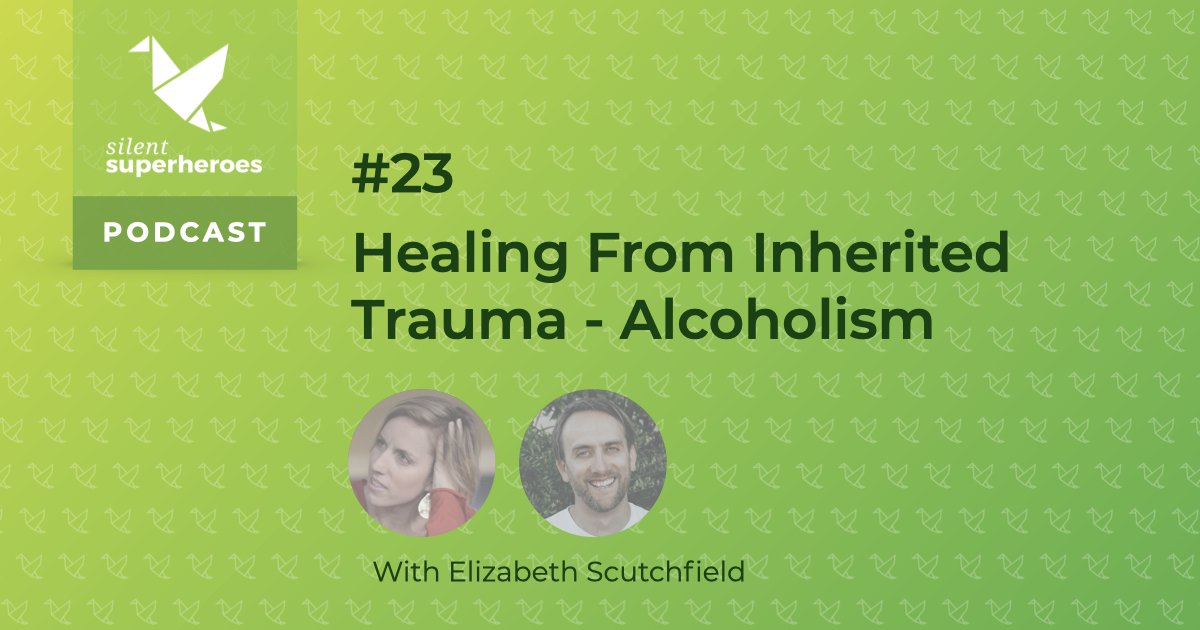Elizabeth has built a successful career in education but grew up in an alcoholic household and became an adult child of an alcoholic. In Silent Superheroes, we often hear about people’s personal battle with mental illness. The truth is that most of us aren’t an island. We have friends, family and colleagues in our life that we interact with everyday. When you spend a lot of time around someone, you leave marks on each other. This episode is about how our personal struggles change those around us.
Listen To Episode 23
Podcast: Play in new window | Download (Duration: 49:55 — 28.9MB)
Show Notes
In this episode, Elizabeth is going to talk about her upbringing as the child of an alcoholic and how that shaped her worldview and affected her work. She’ll tell us about the life changing news she found in her lunchbox and how a residential recovery program changed her mom. We’ll hear about the night drinking with her brother that showed her how her Mom’s alcoholism had affected her. And how as a result of that night how she started her road to recovery. Finally, she’ll share the various different approaches she’s taken to healing, and how they’ve lead her to a place where she’s comfortable in ambiguity in her work.
Links
- Hazelden books (store)
- Al-Anon (recovery organization)
- Adult Children of Alcoholics (recovery organization)
About The Adult Child of an Alcoholic Program
Adult Children of Alcoholics (ACA)/Dysfunctional Families is a Twelve Step, Twelve Tradition program of men and women who grew up in dysfunctional homes.
We meet to share our experience of growing up in an environment where abuse, neglect and trauma infected us. This affects us today and influences how we deal with all aspects of our lives.
ACA provides a safe, nonjudgmental environment that allows us to grieve our childhoods and conduct an honest inventory of ourselves and our family—so we may (i) identify and heal core trauma, (ii) experience freedom from shame and abandonment, and (iii) become our own loving parents.
Getting Support
Remember, the people you hear on Silent Superheroes are sharing their opinions about mental health and mental illness. They are not giving advice. For that reason, please consult with your care provider before making a change to your treatment approach.
It’s important to take your mental health seriously. Consequently, if you need to speak to someone you can call 1-800-273-8255, or text crisistextline.org on 741741. Both provide 24×7 confidential counseling to people in the United States. Worldwide visit http://iasp.info/resources/Crisis_Centres/
Because you listened to the podcast, you can help others find it by leaving us a review on iTunes. Or if you don’t use iTunes, leave a review on your favorite podcasting service.


